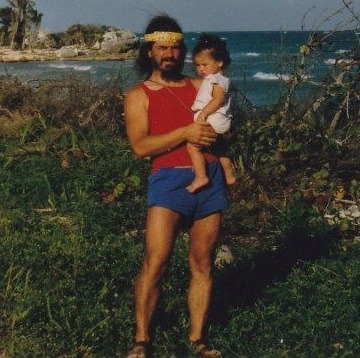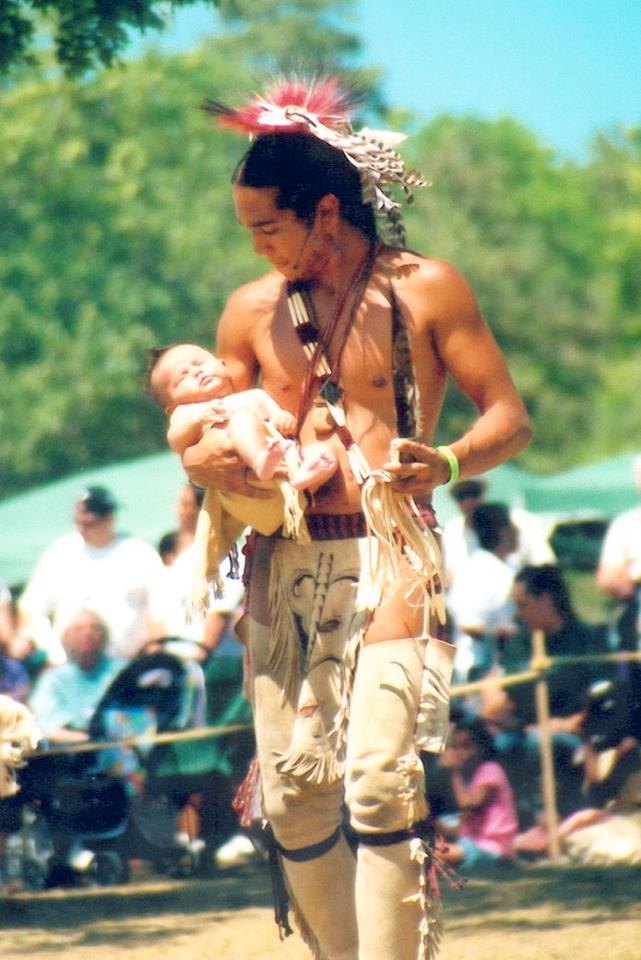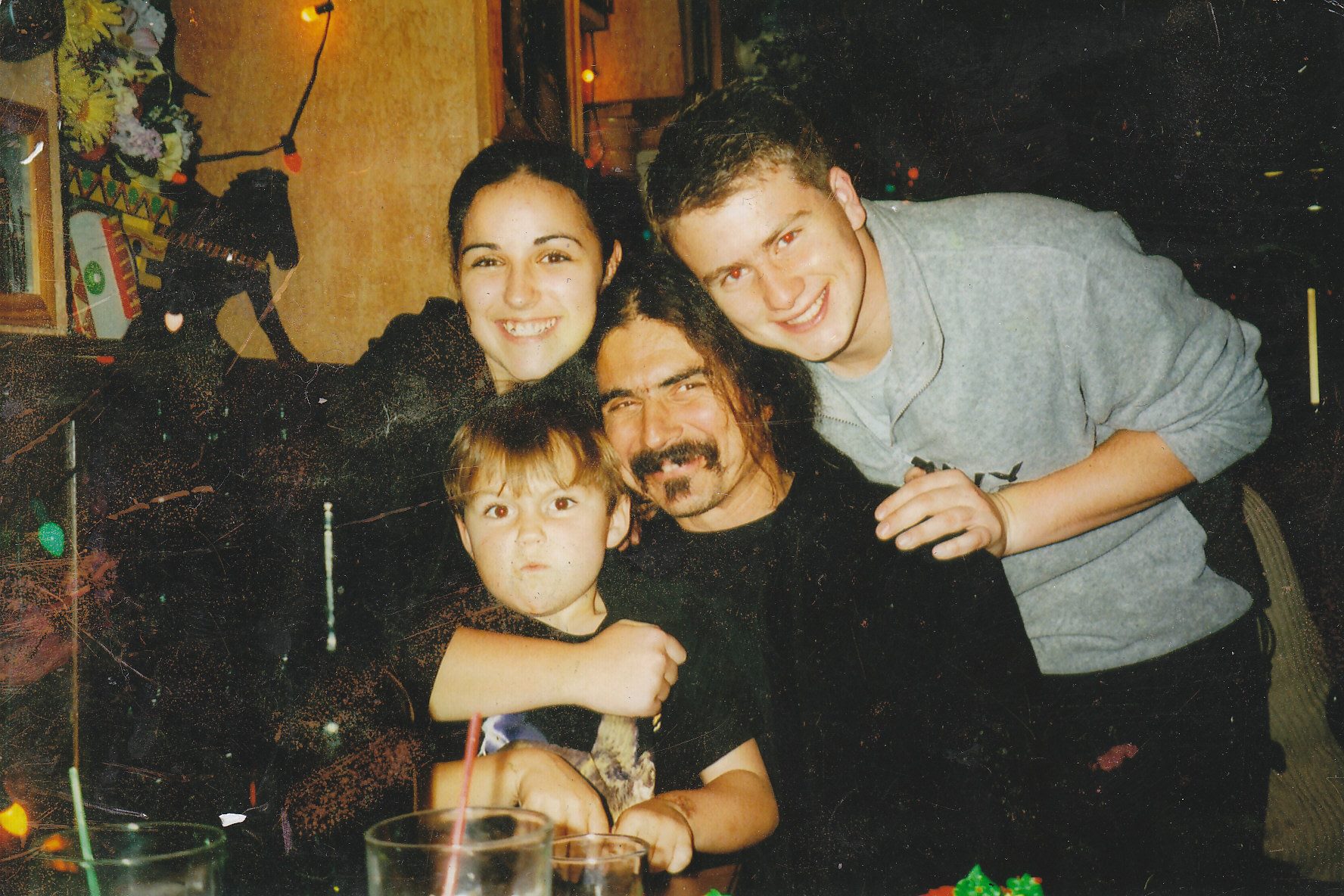Blog
Tony Scott (born Anthony Joseph Sciacca June 17, 1921 – March 28, 2007) was an American jazz clarinetist and arranger with an interest in folk music around the world. For most of his career he was held in high esteem in new-age music circles because of his involvement in music linked to Asian cultures and to meditation.
Born in Morristown, New Jersey, United States, Scott attended Juilliard School from 1940 to 1942. In the 1950s he worked with Sarah Vaughan and Billie Holiday. He also had a young Bill Evans and Paul Motian as side-men on several albums released between 1957 and 1959.[1] In the late 1950s, he won on four occasions the DownBeatcritics poll for clarinetist in 1955, 1957, 1958 and 1959. He was known for a more “cool” style on the instrument than his peer Buddy DeFranco who often played a more aggressive bebop style.
more...Igor Fyodorovich Stravinsky (17 June [O.S. 5 June] 1882 – 6 April 1971) was a Russian composer and conductor with French citizenship (from 1934) and American citizenship (from 1945). He is widely considered one of the most important and influential composers of the 20th century and a pivotal figure in modernist music.
Born to a famous bass in Saint Petersburg, Russia, Stravinsky grew up taking piano and music theory lessons. While studying law at the University of Saint Petersburg, he met Nikolai Rimsky-Korsakov and studied under him until his death in 1908. Stravinsky met the impresario Sergei Diaghilev soon after, who commissioned the composer to write three ballets for the Ballets Russes‘s Paris seasons: The Firebird (1910), Petrushka (1911), and The Rite of Spring (1913), the last of which caused a near-riot at the premiere due to its avant-garde nature and later changed the way composers understood rhythmic structure.
Stravinsky’s compositional career is often divided into three periods: his Russian period (1913–1920), his neoclassical period (1920–1951), and his serial period (1954–1968). During his Russian period, Stravinsky was heavily influenced by Russian styles and folklore. Works such as Renard (1916) and Les noces (1923) drew upon Russian folk poetry, while compositions like L’Histoire du soldat (1918) integrated these folk elements with popular musical forms, including the tango, waltz, ragtime, and chorale. His neoclassical period exhibited themes and techniques from the classical period, like the use of the sonata form in his Octet (1923) and use of Greek mythological themes in works like Apollon musagète (1927), Oedipus rex (1927), and Persephone (1935). In his serial period, Stravinsky turned towards compositional techniques from the Second Viennese School like Arnold Schoenberg‘s twelve-tone technique. In Memoriam Dylan Thomas (1954) was the first of his compositions to be fully based on the technique, and Canticum Sacrum (1956) was his first to be based on a tone row. Stravinsky’s last major work was the Requiem Canticles (1966), which was performed at his funeral.
While many supporters were confused by Stravinsky’s constant stylistic changes, later writers recognized his versatile language as important in the development of modernist music. Stravinsky’s revolutionary ideas influenced composers as diverse as Aaron Copland, Philip Glass, Béla Bartók, and Pierre Boulez, who were all challenged to innovate music in areas beyond tonality, especially rhythm and form. In 1998, Time magazine listed Stravinsky as one of the 100 most influential people of the century. Stravinsky died of pulmonary edema on 6 April 1971 in New York City, having left six memoirs written with his friend and assistant Robert Craft, as well as an earlier autobiography and a series of lectures.
more...Messier 81 (also known as NGC 3031 or Bode’s Galaxy) is a grand design spiral galaxy about 12 million light-years away in the constellation Ursa Major. It has a D25isophotal diameter of 29.44 kiloparsecs (96,000 light-years). Because of its relative proximity to the Milky Way galaxy, large size, and active galactic nucleus (which harbors a 70 million M☉ supermassive black hole), Messier 81 has been studied extensively by professional astronomers. The galaxy’s large size and relatively high brightness also makes it a popular target for amateur astronomers. In late February 2022, astronomers reported that M81 may be the source of FRB 20200120E, a repeating fast radio burst.
Messier 82 (also known as NGC 3034, Cigar Galaxy or M82) is a starburst galaxyapproximately 12 million light-years away in the constellation Ursa Major. It is the second-largest member of the M81 Group, with the D25 isophotal diameter of 12.52 kiloparsecs (40,800 light-years).
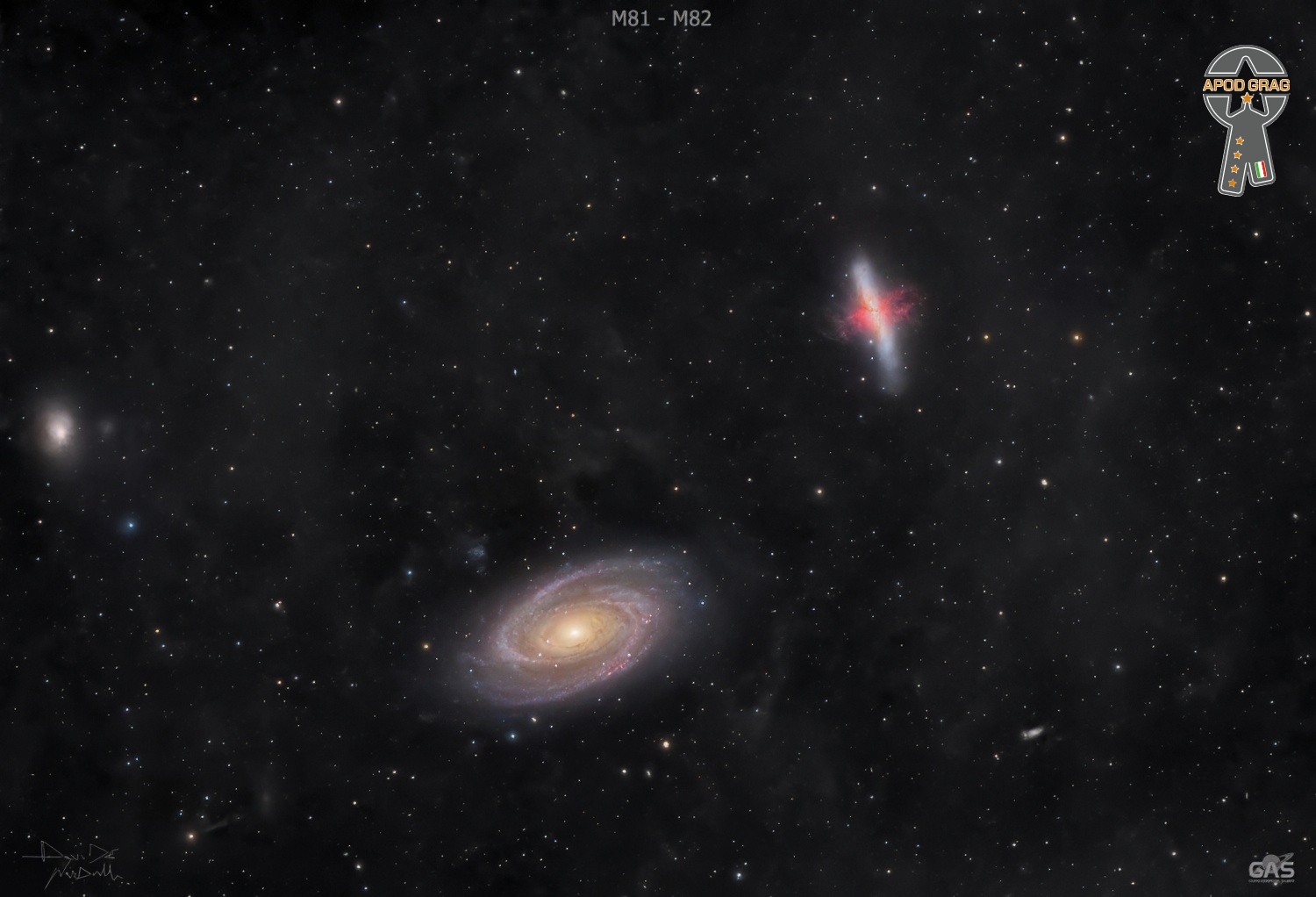
more...
Stewart Armstrong Copeland (born July 16, 1952) is an American musician and composer. He is best known for his work as the drummer of the English rock band the Police from 1977 to 1986, and again from 2007 to 2008. Before playing with the Police, he played drums with English rock band Curved Air from 1975 to 1976. As a composer, his work includes the films Wall Street (1987), Men at Work (1990), Good Burger(1997), and We Are Your Friends (2015); the television shows The Equalizer (1985–1989), The Amanda Show (1999–2002), and Dead Like Me (2003–2004); and video games such as the Spyro series (1998–present) and Alone in the Dark: The New Nightmare (2001). He has also written various pieces of ballet, opera, and orchestral music.
According to MusicRadar, Copeland’s “distinctive drum sound and uniqueness of style has made him one of the most popular drummers to ever get behind a drumset”. He was ranked the 10th best drummer of all time by Rolling Stone in 2016. He was inducted into the Rock and Roll Hall of Fame as a member of the Police in 2003, the Modern Drummer Hall of Fame in 2005, and the Classic Drummer Hall of Fame in 2013.
more...Eli “Lucky” Thompson (June 16, 1924 – July 30, 2005) was an American jazz tenor and soprano saxophonist whose playing combined elements of swing and bebop.Although John Coltrane usually receives the most credit for bringing the soprano saxophone out of obsolescence in the early 1960s, Thompson (along with Steve Lacy) embraced the instrument earlier than Coltrane. Thompson was born in Columbia, South Carolina, and moved to Detroit, Michigan, during his childhood.
After playing with the swing orchestras of Lionel Hampton, Don Redman, Billy Eckstine (alongside Dizzy Gillespie and Charlie Parker), Lucky Millinder, and Count Basie, he worked in rhythm and blues and then established a career in bebop and hard bop, working with Kenny Clarke, Miles Davis, Gillespie and Milt Jackson.
more...IC1871, part of the Soul Nebula also known as Sh2-199 and LBN667 is about 7500 light years distant in the constellation Cassiopeia. This is a crop of the central area for the Soul Nebula.
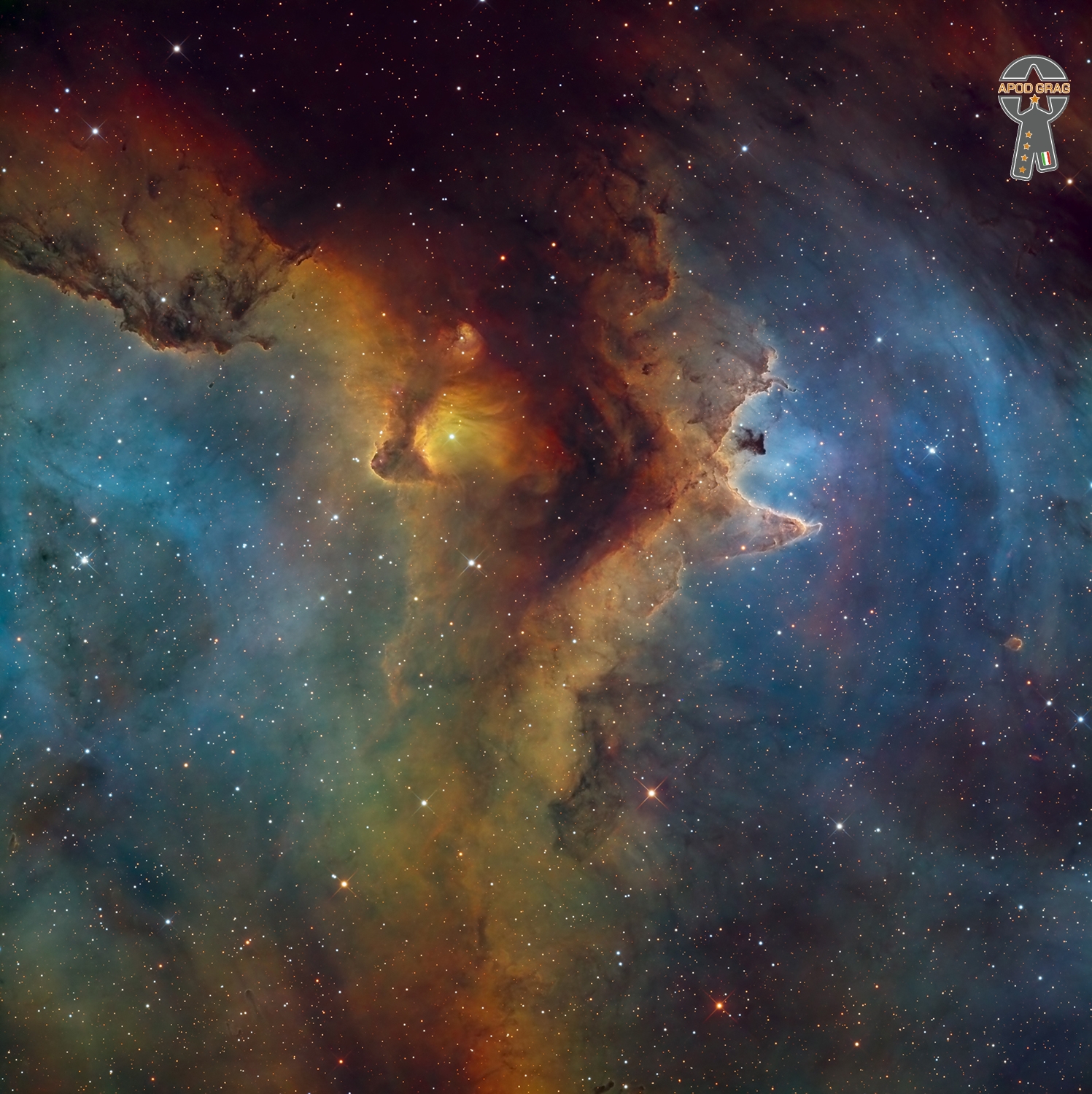
Harry Edward Nilsson III (June 15, 1941 – January 15, 1994), sometimes credited as Nilsson, was an American singer-songwriter who reached the peak of his success in the early 1970s. His work is characterized by pioneering vocal overdub experiments, a return to the Great American Songbook, and fusions of Caribbean sounds. Nilsson was one of the few major pop-rock recording artists to achieve significant commercial success without performing major public concerts or touring regularly.
Born in Brooklyn, Nilsson moved to Los Angeles as a teenager to escape his family’s poor financial situation. While working as a computer programmer at a bank, he grew interested in musical composition and close-harmony singing and was successful in having some of his songs recorded by various artists, such as the Monkees. In 1967, he debuted on RCA Victor with the LP Pandemonium Shadow Show, followed by a variety of releases that included a collaboration with Randy Newman (Nilsson Sings Newman, 1970) and the original children’s story The Point! (1971).
He created the first remix album, Aerial Pandemonium Ballet, in 1971, and recorded the first mashup song (“You Can’t Do That”) in 1967. His most commercially successful album, Nilsson Schmilsson (1971), produced the international top 10 singles “Without You” and “Coconut“. His other top 10 hit, “Everybody’s Talkin’” (1968), was featured prominently in the 1969 film Midnight Cowboy. A version of Nilsson’s “One“, released by Three Dog Night in 1969, also reached the U.S. top 10.
During a 1968 press conference, The Beatles were asked what their favorite American group was and answered “Nilsson”. Sometimes called “the American Beatle“, he soon formed close friendships with John Lennon and Ringo Starr, joining them in the Hollywood Vampires drinking club. He and Lennon produced one collaborative album, Pussy Cats (1974). After 1977, Nilsson left RCA, and his record output diminished. In response to Lennon’s 1980 murder, he took a hiatus from the music industry to campaign for gun control. For the rest of his life, he recorded only sporadically. In 1994, Nilsson died of a heart attack while in the midst of recording what became his last album, Losst and Founnd (2019).
The craft of Nilsson’s songs and the defiant attitude he projected remain touchstones for later generations of indie rock musicians.[5] Nilsson was voted No. 62 in Rolling Stone‘s 2015 list of the “100 Greatest Songwriters of All Time“, where he was described as “a pioneer of the Los Angeles studio sound” and “a crucial bridge” between 1960s psychedelia and the 1970s singer-songwriter era. The RIAA certified Nilsson Schmilsson and Son of Schmilsson (1972) as gold records, indicating over 500,000 units sold each. He earned two Grammy Awards (for “Everybody’s Talkin'” and “Without You”).
more...Nasheet Waits is an American jazz drummer.
Waits is a New York native who has been active on the jazz scene since early in his life. His father, percussionist Freddie Waits, died when Waits was 18.
Before pursuing a music career, Waits studied psychology and history at Morehouse College in Atlanta. He also holds a degree from Long Island University in music. While he was studying at L.I.U, instructor Michael Carvin secured Waits a spot in the percussion ensemble M’Boom, started by his father (Freddie Waits) and drummer Max Roach in 1970.
Waits’s longstanding projects include Jason Moran & The Bandwagon, a trio with Moran, Waits, and Tarus Mateen; Tarbaby, a trio with Eric Revis and Orrin Evans; and his band Equality.
more...Erroll Louis Garner (June 15, 1921 – January 2, 1977) was an American jazzpianist and composer known for his swing playing and ballads. His instrumental ballad “Misty“, his best-known composition, has become a jazz standard. It was first recorded in 1956 with Mitch Miller and his orchestra, and played a prominent part in the 1971 motion picture Play Misty for Me.
Scott Yanow of Allmusic calls him “one of the most distinctive of all pianists” and a “brilliant virtuoso”. Garner received a star on the Hollywood Walk of Fame at 6363 Hollywood Boulevard. His live album Concert by the Sea first released in 1955, sold more than 1 million copies by 1958, and Yanow’s opinion on the album is that it “made such a strong impression that Garner was considered immortal from then on.” Garner was born, along with twin brother Ernest in Pittsburgh, Pennsylvania on June 15, 1921.
more...John Arthur “Jaki” Byard June 15, 1922 – February 11, 1999) was an American jazz multi-instrumentalist, composer, and arranger. Mainly a pianist, he also played tenor and alto saxophones, among several other instruments. He was known for his eclectic style, incorporating everything from ragtime and stride to free jazz.
Byard played with trumpeter Maynard Ferguson in the late 1950s and early 1960s, and was a member of bands led by bassist Charles Mingus for several years, including on several studio and concert recordings. The first of his recordings as a leader was in 1960, but, despite being praised by critics, his albums and performances did not gain him much wider attention. In his 60-year career, Byard recorded at least 35 albums as leader, and more than 50 as a sideman. Byard’s influence on the music comes from his combining of musical styles during performance, and his parallel career in teaching.
From 1969 Byard was heavily involved in jazz education: he began teaching at the New England Conservatory of Music and went on to work at several other music institutions, as well as having private students. He continued performing and recording, mainly in solo and small group settings, but he also led two big bands – one made up of some of his students, and the other of professional musicians. His death, from a single gunshot while in his home, remains an unsolved mystery. Byard was born in Worcester, Massachusetts, on June 15, 1922.
more...Friday June 14th 6pm with Inbal Sharett-Singer, Jayson Rodovsky, Jeff Bailey, Pete Whitman and mick LaBriola.
more...From the 1960 astronomical catalog of Rodgers, Campbell and Whiteoak, emission region RCW 85 shines in southern night skies between bright stars Alpha and Beta Centauri. About 5,000 light years distant, the hazy interstellar cloud of glowing hydrogen gas and dust is faint. But detailed structures along well-defined rims within RCW 85 are traced in this cosmic skyscape composed of 28 hours of narrow and broadband exposures. Suggestive of dramatic shapes in other stellar nurseries where natal clouds of gas and dust are sculpted by energetic winds and radiation from newborn stars, the tantalizing nebula has been called the Devil’s Tower. This telescopic frame would span around 100 light-years at the estimated distance of RCW 85.
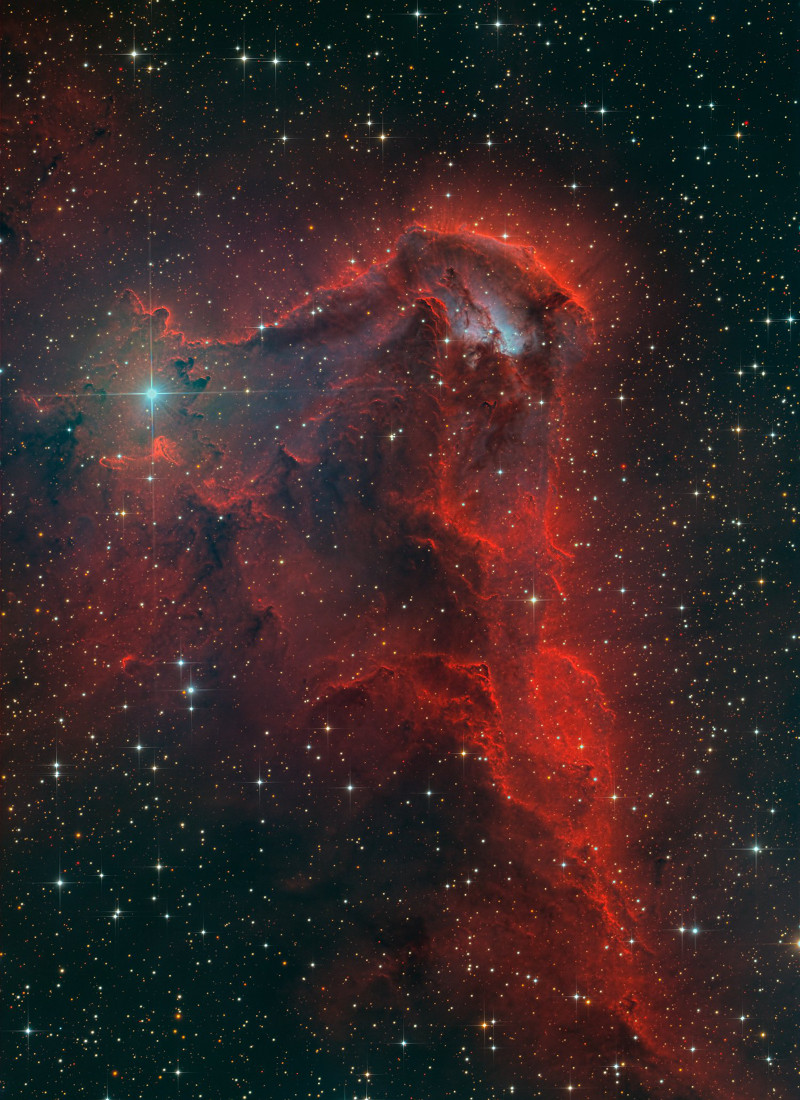
more...
More Posts
- World Music Olivia Foai
- Daily Roots Phillip Frazer
- Cosmos NGC 1999
- Earl Palmer
- Georges Bizet
- Jimmy Heath
- Eddie Lang
- World Music Layth Sidiq & The NY Arabic Orchestra
- Daily Roots Prince Far I
- Cosmos NGC 4254
- Odeon Pope
- Willie Mabon
- Sonny Terry
- SAVE UKRAINE World Music Trio Mandili & Ars Nova Napoli
- Daily Roots Bob Soul & The United Stars – Message From The Congo
- Cosmos NGC 7293
- Gary Mcfarland
- Ernie Watts
- Frank Hewitt
- Sonny Criss



